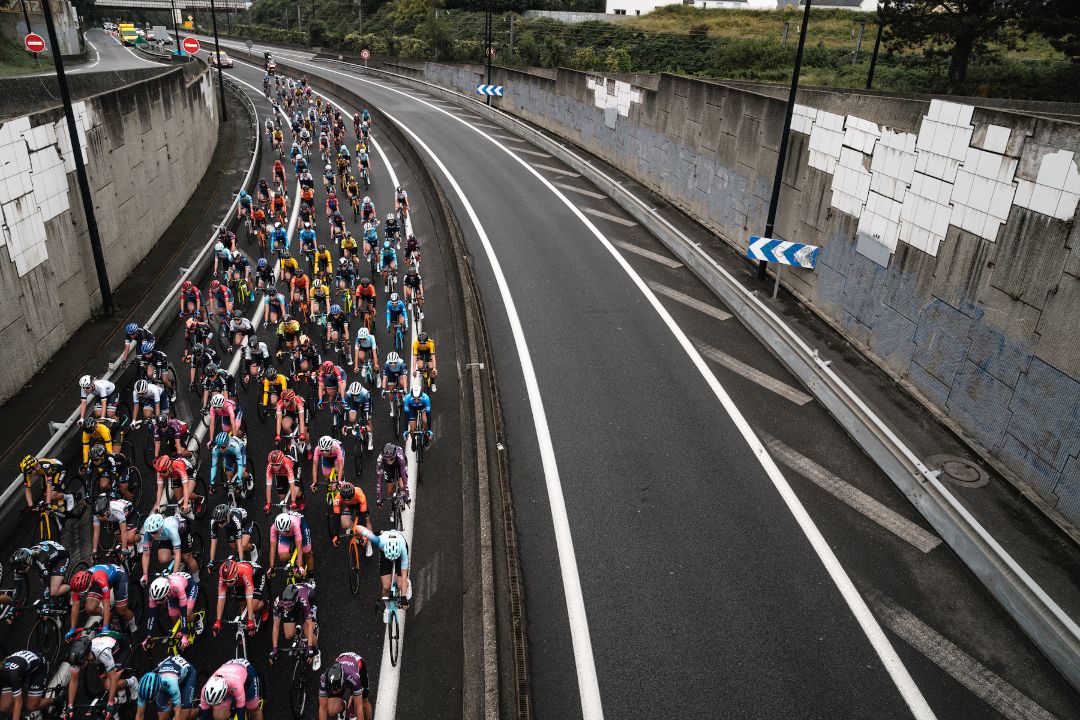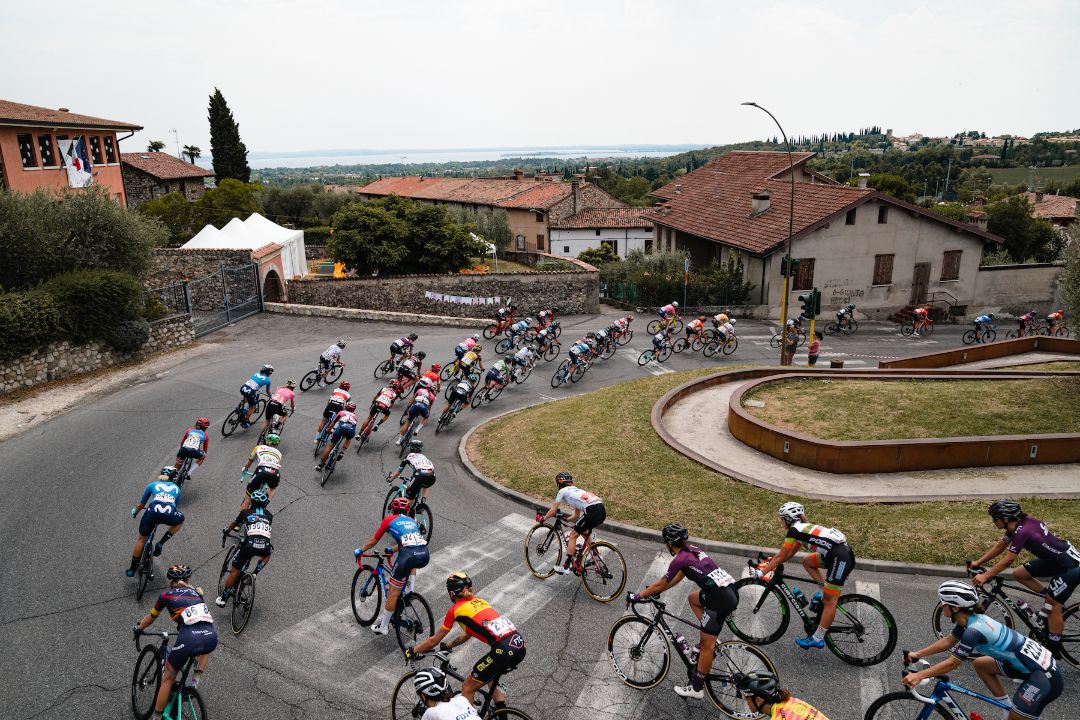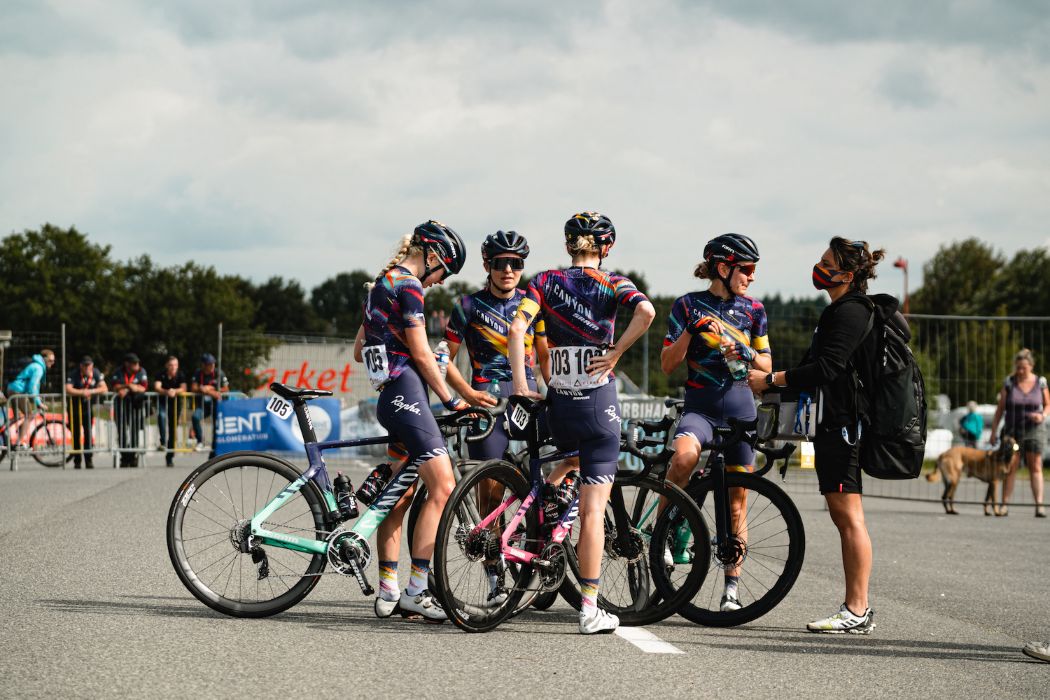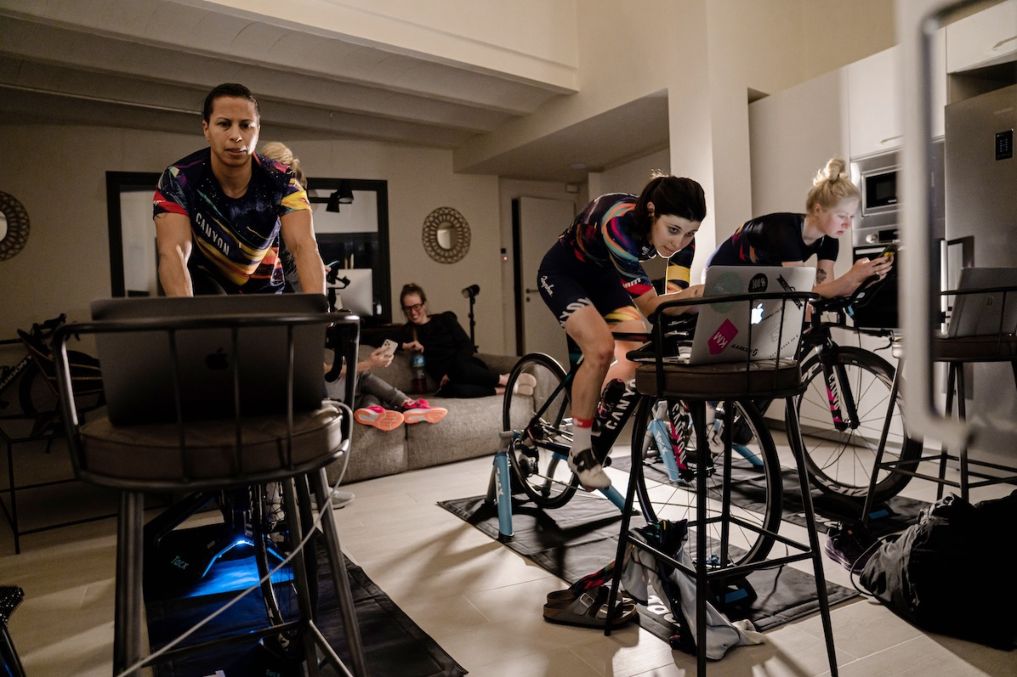The development squad is a first for a European Women’s WorldTour organisation. It is expected to be registered as a UCI Continental team with eight riders being given access to individual coaching, mentorship, a racing programme, and trainee rides with the Canyon//SRAM WorldTeam.
This is a big step for women’s cycling, and to get a little more insight into how the programme was developed and what we can expect, we spoke to one of the forces behind its creation—Christine Kalkschmid.

Kalkschmid is an experienced expert for Diversity and Inclusion and Team Development, and when she joined CANYON//SRAM Racing at the start of 2021, she was clear that she was going to help the team make meaningful and sustainable steps towards achieving a more diverse programme. Previously working as a lawyer in financial services, Christine is also a former professional rower. Although cycling has always been a passion of hers, professional cycling is something new.
She has been working with the team at training camps and attending races to expand her knowledge of women’s pro cycling and the team’s inner mechanics. We spoke to her about how the team’s structure overcomes some of the barriers in women’s cycling, how they appealed to riders in their target countries, and what the response has been like so far!
You had plenty of obstacles to overcome in the creation of this team. How was the new two-tier structure designed, and what challenges is it intended to address?
Team Manager Ronny Lauke and I started discussing the concept of a development team to be a part of our team’s D&I program right after I started working with CANYON//SRAM Racing at the end of 2020. The two main challenges we wanted to address were the lack of diversity in women’s cycling in general and the difficulties riders from outside of (Western) Europe have to overcome to enter the pro peloton.
Looking at the overall picture, there is a significant gap between the junior levels and the elite/World Tour level of racing. Riders coming out of the junior category are forced to make the jump and try to survive and thrive if they want to gain or maintain a pro contract and continue in the sport. There is a similar scenario for older riders, coming from another sport and trying to enter into the women’s pro peloton.

Then, look at non-dominant cycling nations, particularly those outside of (Western) Europe, and even more so those that don’t have established pathways to get to Europe in order to race. The gap is even more glaring and even more challenging to overcome.
This leads to the peloton not being diverse at all. There are whole continents and many countries that are under-represented in the current women’s peloton. Aiming the rider recruitment at these areas, we hope to reduce the gap between junior categories and the Women’s World Tour and increase the visibility of women’s pro cycling in these same countries. This hopefully shows those women who dream of being pro cyclists that there is a pathway to fulfil their dreams.
We are convinced that there are plenty of great talents in countries outside the dominant cycling nations and that they can – given the support – successfully perform at a Women’s World Tour level. Proving this will help make women’s cycling more diverse and inclusive.
Education will play a significant role in the success of your mission. What will be covered in the Diversity and Inclusion programme that riders will attend?
The main part of the programme is about learning and understanding Diversity and Inclusion, and the impact it has on each individual, the team, and beyond. We want to achieve real commitment amongst all our team members, and actions based on a true understanding and conviction that living the values of D&I makes the world a better place.

That includes formal training and workshops that cover the essentials of Diversity & Inclusion but also topics such as unconscious bias, inclusive language, cultural humility, microaggressions, freedom of speech, and many more. As Diversity and Inclusion is not only about obvious or visible differences, like nationality, language or the colour of one’s skin, Team Development is also a big part of our D&I journey.
Each team member has a different background and experiences, unique character traits, different emotional needs, and ways to process information, etc. These differences lead to varying needs regarding communication, integration, individuality, security, empathy, etc., that can make or break a high-performing team.
As you mentioned before, the lack of a clear pathway can make riders in many countries feel pretty isolated from the world of professional cycling. How did CANYON//SRAM reach out to riders/advertise the programme in the countries it hopes to represent?
To set up a truly diverse and inclusive programme, it was essential for us to make sure that everyone interested in joining the team knew about the program and that we make the application process as easy as possible.

We sent out a press release announcing the plans of the new development team for 2022, which received an overwhelmingly positive response. We also held an online press conference with journalists to answer questions about the new team, its purpose and structure. The news was published on the team’s social channels and website, and it was also distributed amongst the team’s 28 partners.
When the applications were open for the development team, we did the same with a press release, and we also promoted the opportunity on our social channels. The women’s world team riders, from 9 nationalities, shared the application process. We encouraged our partners to share the news either on their social channels or within their networks and various country offices, such as Canyon’s country office in South Africa.
Last but not least, we reached out directly to many other communities we had contact with, for example, Team Africa Rising, asking if they could share the news amongst potential candidates. The Cyclist Alliance foundation also shared the opportunity amongst its members and online channels.
It is great to hear that the response has been so positive. That said, what are the unique challenges that women from your target countries face regarding professional sports, and how is the program going to address them?
There is an array of challenges for riders from countries under-represented in the pro peloton, such as limited opportunities to race at an international level, little coaching support and staff support for training or racing, more difficulties to travel, language barriers for non-native English speakers, etc.

To address these challenges, the Development Team will live and train together in a base in Europe, including full-time coaching. Riders will have a consistent race programme at the national or UCI .2 level to gain experience. We provide professional and qualified support staff for training and racing, assistance with accommodation, travel to and from races, travel to and from home, assistance with visas, language courses, etc. Our goal is to make the life of our riders as easy as possible so that they can fully focus on the sport and develop their full potential in cycling with as few distractions as possible.
It sounds like the ideal situation for talent to flourish. As the programme is just kicking off, though, what has been the most surprising and the most fulfilling part of working on it so far?
There were many fulfilling moments along the way. The first one was to see how the team opened up more and more to the topic of D&I during the first training camp in January 2021 in Girona. With every session, the discussions got livelier, and the team members started sharing their stories. D&I, and even more so Team Development, is a lot about trust. Seeing how that trust developed and how that changed the communication within the team was amazing!
But the most fulfilling part so far was probably to see our plans for the development team come true after working on it for so long in the background. We did not only manage to make this major stepping stone come true but the reactions to the announcement were overwhelmingly positive, and we received an incredible amount of more than 239 applications from all over the world.
That was by far the best reward we could get for the work we put in to make it happen!
A huge thank you to Christine Kalkschmid for taking the time to share her insight with us! We will be keeping you up to date as the team gets underway next year. And you should, of course, also follow @wmncycling for your Canyon//SRAM Women’s WorldTour squad fix!




